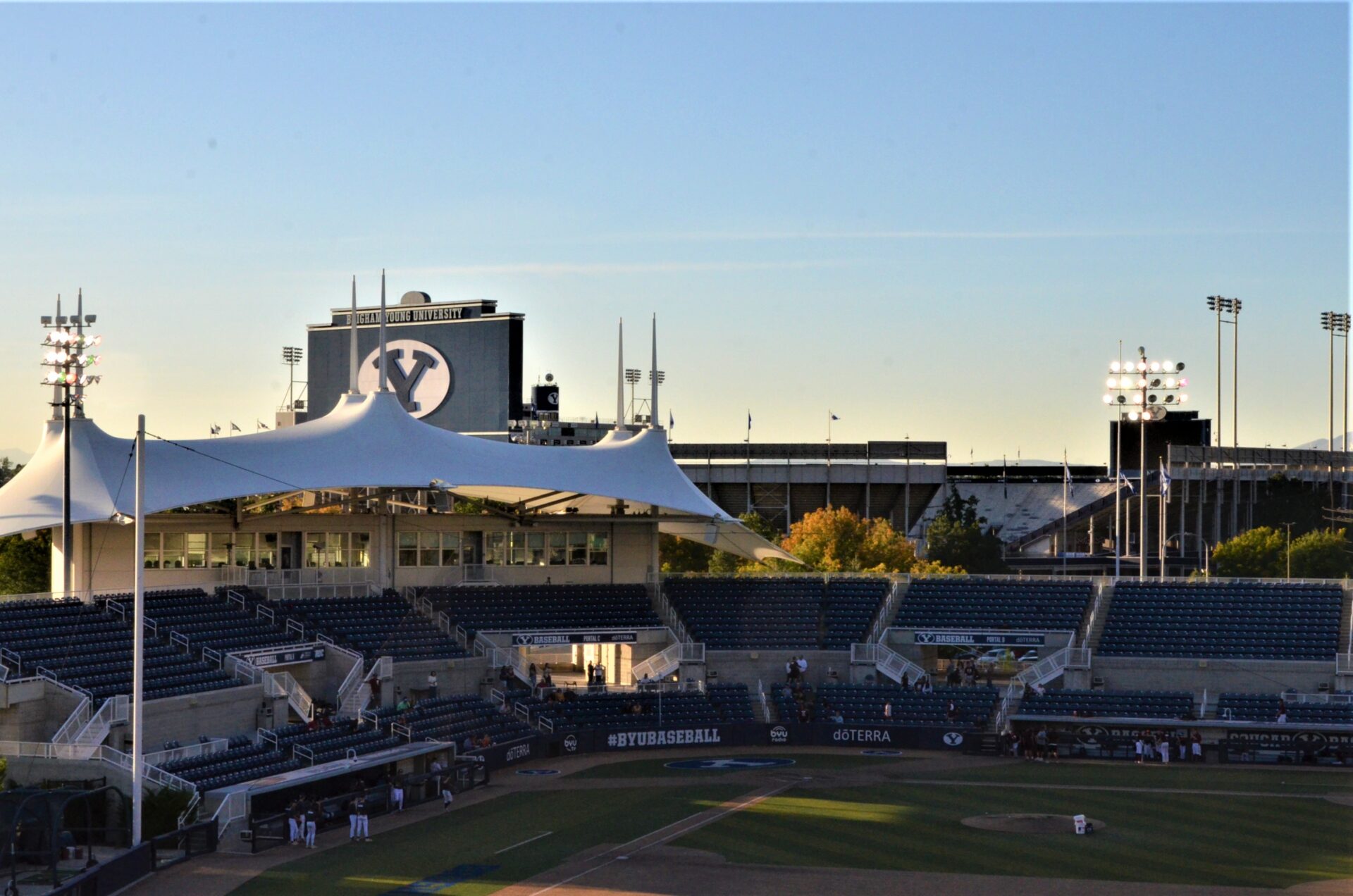
Discussion of bringing a Major League Baseball team to Salt Lake City became more official when Larry H. Miller Company CEO Steve Starks presented renderings of the future MLB stadium at the Silicon Slopes Summit in September.
The potential project raises questions about what this could mean for Salt Lake’s economy.
“You’re substituting,” retired BYU economics professor Michael Ransom said. “(You’re) taking money from one area and moving it to another.”
Instead of the stadium bringing in new money, he explained, the stadium would be taking money from places like movie theaters and other activities and bringing it to the stadium.
After all, “all professional sports exist for the entertainment value,” baseball player Jerry Nyman said. Nyman played for BYU from 1963-64 and went on to play professionally.
This is clear, he explained, when looking at the changes that have been made to the game. The MLB has enlarged bases and added a pitcher clock so the pitcher has to throw within 15 seconds. All of these changes were made so that the game moves quickly and more aggressively so that audiences are kept happy and entertained, he said.
One of the big reasons Salt Lake City is attractive to the MLB is because of buy-out costs, Nyman said. When a professional team moves into an area, it is expected to buy out minor league teams within a certain radius for encroaching on their “territory.”
For Salt Lake, this only means buying out the Salt Lake Bees, as opposed to moving into other cities like Las Vegas, where there would be more teams to buy out and thus lower profits, he said.
Riley Wilson explained that as further incentive to companies like this, cities often offer tax breaks.
“If we’re offering tax breaks, the net benefit might be less,” he said. He also said that these tax breaks are often contracted at about 10-20 years, meaning Salt Lake City would be making little from the stadium for that length of time.
The profits of the MLB stadium would be going to the owners of the team, not the city, Ransom said. “The bottom line is at best it’s going to be a small part of the economy of the city, and a private more than public good.”
However, there are some public relations benefits for Salt Lake City as an MLB stadium brings some notoriety and publicity.
“There’s prestige attached,” Wilson said. “It makes your city look like a better place. If you have a professional sports team you must be a big cosmopolitan city.”
Wilson also pointed out that this means Salt Lake City might be considered for conferences or other events where it may not have been before.
And of course, for the baseball fans, this is a dream come true.
“If you bring a baseball team here, they’re going to support it,” BYU accounting student Alex Hayes said about the perceived willingness of Utahns to support an MLB team.
However, Nyman brought up a concern with the numbers. The Salt Lake City Bees have an attendance rate of about 4,500 per game for a total of a little more than 300,000. This is lower attendance than the Las Vegas Aviators, who boast almost 7,000 per game for a total of a little more than 428,000.




